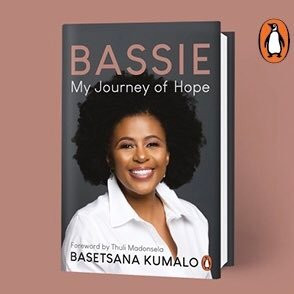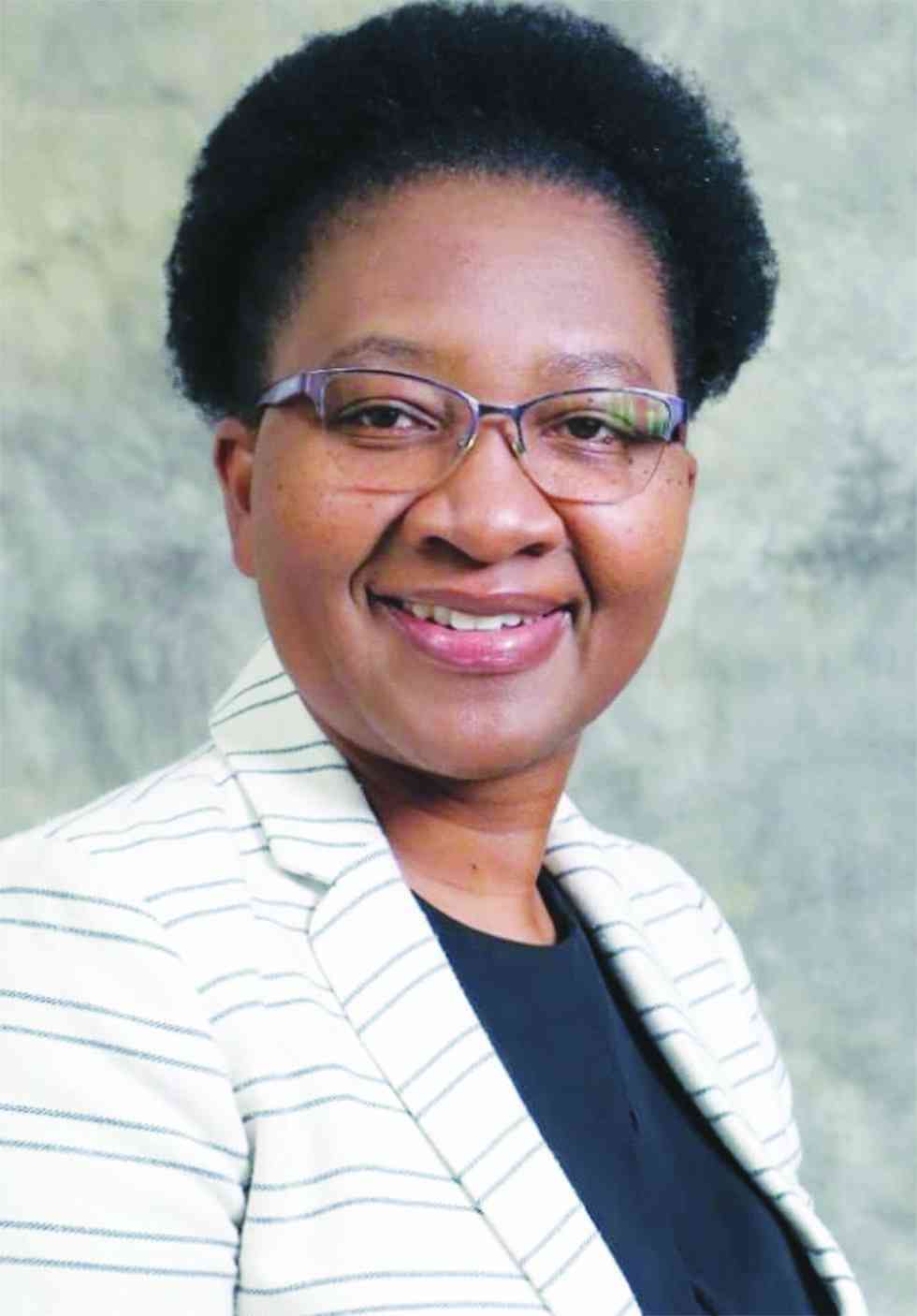
Allow me to indulge you with the powerful and deeply personal memoir by South African media icon, businesswoman, and former Miss South Africa, Basetsana Kumalo.
Her full life is chronicled in her book, My Story of Hope. The biography recounts Bassie’s (as she is affectionately known) journey from a humble childhood in Soweto to becoming one of South Africa’s most influential women. This review is for all my girl bosses, the pretty faces and the phenomenal women aspiring for greater heights. The memoir is an inspiring testament of resilience, faith, and a commitment to one’s dreams, even in the face of life’s most difficult challenges.
Come along, let’s delve into this memoir, which is more than a personal success story. It is a tribute to all of us as women who have faced adversity and have emerged stronger, a celebration of the triumphs and struggles of post-apartheid South Africa, and a message of hope and empowerment for future generations of all races.
Born in 1974 and raised in Soweto during apartheid, Bassie faced significant challenges like most African girls. Her family experienced financial hardships, and she grew up witnessing the effects of a racially-divided society. Yet Bassie was raised by parents who instilled in her the values of hard work, faith, and a belief in her own worth. Her mother (affectionately known as Moeder), a teacher, and her father, a bus driver, were dedicated to ensuring that their children received an education despite the limitations imposed by the system.
Bassie’s early life story captures both the strength and resilience of her family, and it is these qualities that she carries forward in her career and personal life.
One of the most compelling aspects of Bassie’s narrative is how she navigated the challenges of entering the pageant world as a young black woman. In 1994, she won the Miss South Africa pageant, a landmark achievement in the year of the country’s first democratic elections. Bassie’s victory was emblematic of a new era for South Africa, representing hope, change, and the potential for young black South Africans to achieve their dreams. Her experiences in the beauty industry, often marred by racial discrimination and stereotypes, are portrayed candidly in her memoir. Bassie does not shy away from discussing the pressures and challenges she faced, as well as the resilience she had to muster to maintain her self-worth and identity in a world that often tried to define her differently.
While Bassie’s early fame came from her success in pageantry, My Story of Hope makes it clear that she was determined not to be defined by it, she had bigger dreams and ambitions, and she was willing to put in the work to make them a reality.
After her reign as Miss South Africa, Bassie became a formidable force in the South African media industry.
- Adetshina wins Miss Universe Nigeria title after South Africa setback
- ‘My Story of Hope’: Testament to the power of faith, determination
Keep Reading
She founded her own production company, which produced several popular television shows, including Top Billing and Pasella, programmes that became staples of South African television.
Bassie’s business acumen shines, as she details the challenges and triumphs of running a business in a competitive industry.
Her journey from a beauty queen to a successful entrepreneur was by no means easy.
Bassie faced scepticism and was often underestimated by others who could not see past the pretty face.
However, she used this scepticism as fuel to build a legacy and prove that she was capable of far more than just being pretty. In doing so, Bassie became a role model for young women across South Africa, showing that one can balance beauty and brains, success, and compassion.
Her story also buttresses the importance of mentorship and community. Throughout her career, Bassie has supported and uplifted others, especially young women. She shares stories of mentorship and guidance, and her genuine care for others is evident in how she recounts these relationships. Through her work in television production, and as a businesswoman, Bassie has used her platform to encourage and inspire others.
While My Story of Hope celebrates Bassie’s achievements, it also gives us a front row seat into her personal struggles, particularly her battle with infertility and the emotional toll it took on her and her family. In her memoir, Bassie opens up about the pain of multiple miscarriages and the loneliness she felt during this period. Her honest and heartfelt description of her journey to motherhood is one of the most moving parts of the book for me as a young woman struggling with the pain of miscarriage.
Through her openness, Bassie breaks the silence surrounding infertility, a topic often stigmatised in African communities, and offers support to other women going through similar experiences.
Another deeply personal aspect of her story is her relationship with her husband, Romeo Kumalo, a well-known South African businessman. Their love story, grounded in mutual respect and shared values, provides a glimpse into Bassie’s life beyond her public persona. Their partnership is one of support and encouragement, and it is clear that her husband has been a significant source of strength throughout her journey.
The challenges they have faced together, both personal and professional, illustrate the power of a strong, supportive relationship and buttress the importance of finding a partner who respects and encourages one’s ambitions.
Throughout the memoir, Bassie emphasises the importance of faith and a sense of purpose in her life. Her Christian faith has been a guiding force, helping her through challenging times and grounding her in her achievements.
She credits her success to God’s grace and her family’s unwavering support. Bassie’s belief in her purpose extends beyond her own success to her desire to make a difference in South Africa. Through her charitable work and mentorship initiatives, she has impacted countless lives, and she views this as an essential part of her legacy.
My Story of Hope thus becomes more than a personal narrative; it is a call to action, inspiring readers to find their own purpose and to contribute positively to their communities.
My Story of Hope is a remarkable memoir that offers a deeply personal glimpse into the life of one of South Africa’s most iconic women. Bassie’s story is one of resilience, ambition, and faith, and her journey from a young girl in Soweto to a celebrated media mogul and philanthropist is both inspiring and humbling. The memoir is not only a testament to Bassie’s strength and determination. It is also a celebration of South Africa’s journey towards progress and empowerment for all. Bassie’s willingness to share her personal struggles, particularly her journey to motherhood, adds depth to her story and offers solace to those like me who may be facing similar challenges. Her reflections on faith, purpose, and community provide valuable insights, making this memoir a powerful source of inspiration for anyone seeking hope and direction in their own lives. Ultimately, My Story of Hope is more than an autobiography. It is a love letter to girl bosses, pretty faces and phenomenal women across Africa and the world, a tribute to the countless women who have fought for their dreams, and a beacon of hope for future generations.
For those looking for a story of empowerment, resilience, and transformation, Bassie’s memoir is a must-read, serving as a reminder that with faith, courage, and determination, it is possible to overcome even the most daunting challenges.
Dhliwayo is an acclaimed restaurateur, award winning creative designer, photographer and entrepreneur. She is the founder and CEO of award-winning nutrition start-up, Yanaya A Healthy Lifestyle, which is Zimbabwe’s first healthy food bar chain that is disrupting how people eat.










